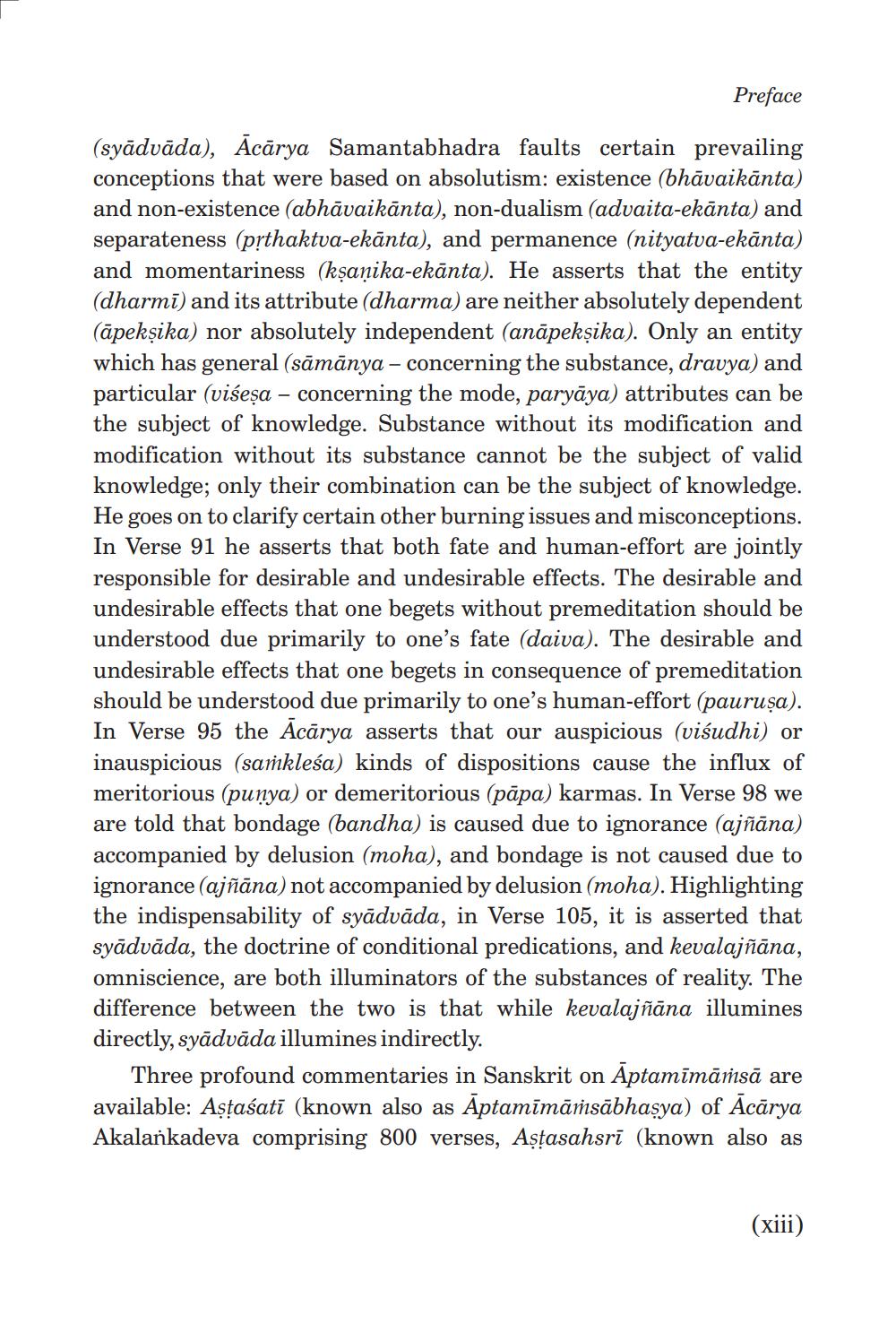________________
Preface
(syādvāda), Acārya Samantabhadra faults certain prevailing conceptions that were based on absolutism: existence (bhāvaikānta) and non-existence (abhävaikanta), non-dualism (advaita-ekānta) and separateness (pṛthaktva-ekānta), and permanence (nityatva-ekānta) and momentariness (kṣanika-ekānta). He asserts that the entity (dharmi) and its attribute (dharma) are neither absolutely dependent (apekṣika) nor absolutely independent (anapekṣika). Only an entity which has general (sāmānya - concerning the substance, dravya) and particular (viseṣa - concerning the mode, paryaya) attributes can be the subject of knowledge. Substance without its modification and modification without its substance cannot be the subject of valid knowledge; only their combination can be the subject of knowledge. He goes on to clarify certain other burning issues and misconceptions. In Verse 91 he asserts that both fate and human-effort are jointly responsible for desirable and undesirable effects. The desirable and undesirable effects that one begets without premeditation should be understood due primarily to one's fate (daiva). The desirable and undesirable effects that one begets in consequence of premeditation should be understood due primarily to one's human-effort (paurusa). In Verse 95 the Acarya asserts that our auspicious (visudhi) or inauspicious (saṁklesa) kinds of dispositions cause the influx of meritorious (punya) or demeritorious (pāpa) karmas. In Verse 98 we are told that bondage (bandha) is caused due to ignorance (ajñāna) accompanied by delusion (moha), and bondage is not caused due to ignorance (ajñāna) not accompanied by delusion (moha). Highlighting the indispensability of syādvāda, in Verse 105, it is asserted that syadvāda, the doctrine of conditional predications, and kevalajñāna, omniscience, are both illuminators of the substances of reality. The difference between the two is that while kevalajñāna illumines directly, syadvāda illumines indirectly.
Three profound commentaries in Sanskrit on Aptamīmāṁsā are available: Aṣṭaśatī (known also as Āptamīmāṁsābhaṣya) of Acārya Akalankadeva comprising 800 verses, Aṣṭasahsri (known also as
(xiii)




